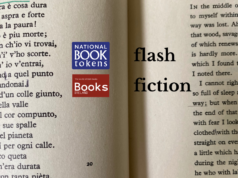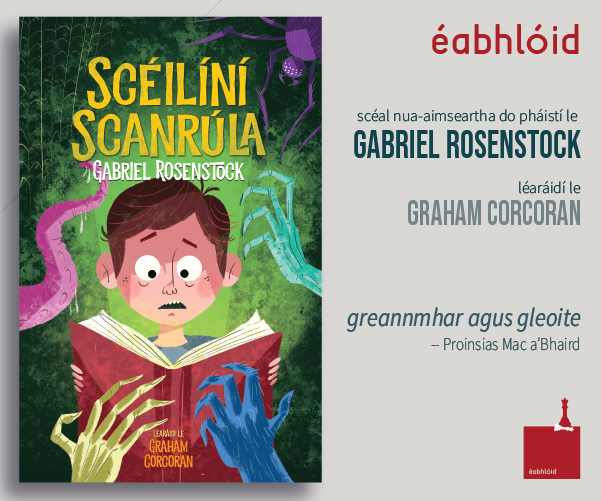
Peace Comes Dropping Slow|Denis Bradley|Merrion Press
Essential reading on how the Peace Process came about—Peace Comes Dropping Slow, by Denis Bradley
by Consulting Editor, Tony Canavan
The recent coroners’ inquests into deaths in Northern Ireland during the Troubles have revealed that what was going on was not a clear cut conflict between two opposing sides.
These inquests have revealed that elements of the British security forces actively cooperated with Loyalist groups in the murder of innocent Catholics. Alongside this, the revelations over the British agent codenamed Stakeknife show that the IRA was heavily infiltrated by informers and that these agents manipulated the deaths of other IRA members and allowed bombings and attacks to proceed in order to protect their identity. We can assume that the IRA had its own sources within the security apparatus. In other words, there were many layers to what was going on during these years of conflict, with much interaction between opposing groups.
There were contacts between the Irish and British governments, between political groupings and the paramilitary organisations putting out feelers in hopes of a peaceful settlement
If the above was, what we might call, activity on behalf of continuing the conflict, there were other layers of activity attempting to bring about peace. There were contacts between the Irish and British governments, between political groupings and the paramilitary organisations putting out feelers in hopes of a peaceful settlement.
Denis Bradley was central to one layer of this activity. From early on in Derry, he had contacts within the IRA and RUC, playing his part to calm things down. From about 1975 onwards, he became one of the people involved in the so-called Back Channel, carrying messages and arranging meetings between the IRA and British officials. He continued in this role for decades, persevering during some of the worst years of the Troubles. It was only once the Peace Process in the 1990s was firmly grounded that his role became widely known.
It was only once the Peace Process in the 1990s was firmly grounded that his role became widely known
In this book, Bradley tells his own story. It is not simply an account of his involvement in the Back Channel and attempts to bring about an IRA ceasefire and negotiations, but is a rounded picture of his life. He had humble beginnings in a rural family in County Donegal, not far from the Border with County Derry in Northern Ireland. His early experiences reveal how the Border was viewed by Catholics in Donegal and Derry. For example, Bradley was educated at St. Colmcille’s College in Derry. It is worth taking a step back and to remember that this is the school from which emerged Seamus Heaney, John Hume, Seamus Deane, and even football manager, Martin O’Neill. It is clear that the education Bradley received there stood him in good stead for the rest of his life.
Entering the priesthood was not an unusual step for a young man with this background, there being few other outlets for intelligent young men. This is not to say that it was merely a career choice. Bradley had a genuine vocation. He was sent to be trained in the Irish College in Rome, which would have been an enlightening experience in itself—but his stay there happened to coincide with the Second Vatican Council with the Irish bishops’ delegation also staying at the Irish College.
Bradley, by his own admission, was an idealist who believed that the Catholic Church had a social as well as a religious role to play
Bradley returned to Derry as a priest assigned to the Cathedral before being sent to the Long Tower parish as a permanent posting. The late 1960s was a time of rising political consciousness among Nationalists, especially in Derry, and the first ripples of social agitation that would eventually encounter a violent Unionist backlash and lead ultimately to decades of civil conflict.
Bradley, by his own admission, was an idealist who believed that the Catholic Church had a social as well as a religious role to play. While never directly involved in politics, he participated in the debates of this time and was involved in crucial initiatives, like the establishment of the Bogside Development Association.
Such work brought him into contact with individuals across the spectrum and earned him a reputation for integrity and honesty. From today’s perspective, it seems almost inevitable that when a secret channel of communication was opened between the British and the Republican movement that he would be chosen to act as a go-between. Bradley gives us a detailed account of the following decades: who met whom, what passed between them, and what the consequences were.
This was not a straightforward progression towards a cessation of violence and peace talks. Events such as Bloody Sunday, when the British army killed fourteen civilians in Derry, and the IRA Hunger Strikes, threatened to derail the process. Sometimes the personalities involved caused problems, especially once Margaret Thatcher became British Prime Minister. It is clear that Bradley writes with honesty, and occasionally with passion, about the twists and turns in these years. It was stressful, even dangerous, but his sense of duty meant that he did not walk away, even after he left the priesthood and married. He can now claim credit for the role he played in bringing about the Peace Process and his part in subsequent developments such as the establishment of the Police Service of Northern Ireland.
It was stressful, even dangerous, but his sense of duty meant that he did not walk away, even after he left the priesthood and married
Clive James, the cultural commentator, famously was sceptical about autobiographies, saying that too often they didn’t give the whole truth. That might be said of this autobiography but in the opposite sense from what James meant. I suspect that Bradley is not telling the whole truth of the extent of his influence as a member of the Back Channel, that his ingrained modesty leads him to underplay his importance.
His book is well written in lucid prose and takes the reader along on the author’s own personal odyssey from rural Donegal to the centre of historic events. However, there is sometimes a tendency to meander when relating some events, to get bogged down in detail, and too often a reliance on extracts from reports or newspaper articles when the reader wants to hear Bradley’s own words. Having said that, for anyone interested in the Northern Ireland Troubles and how the Peace Process came about, this is essential reading.















